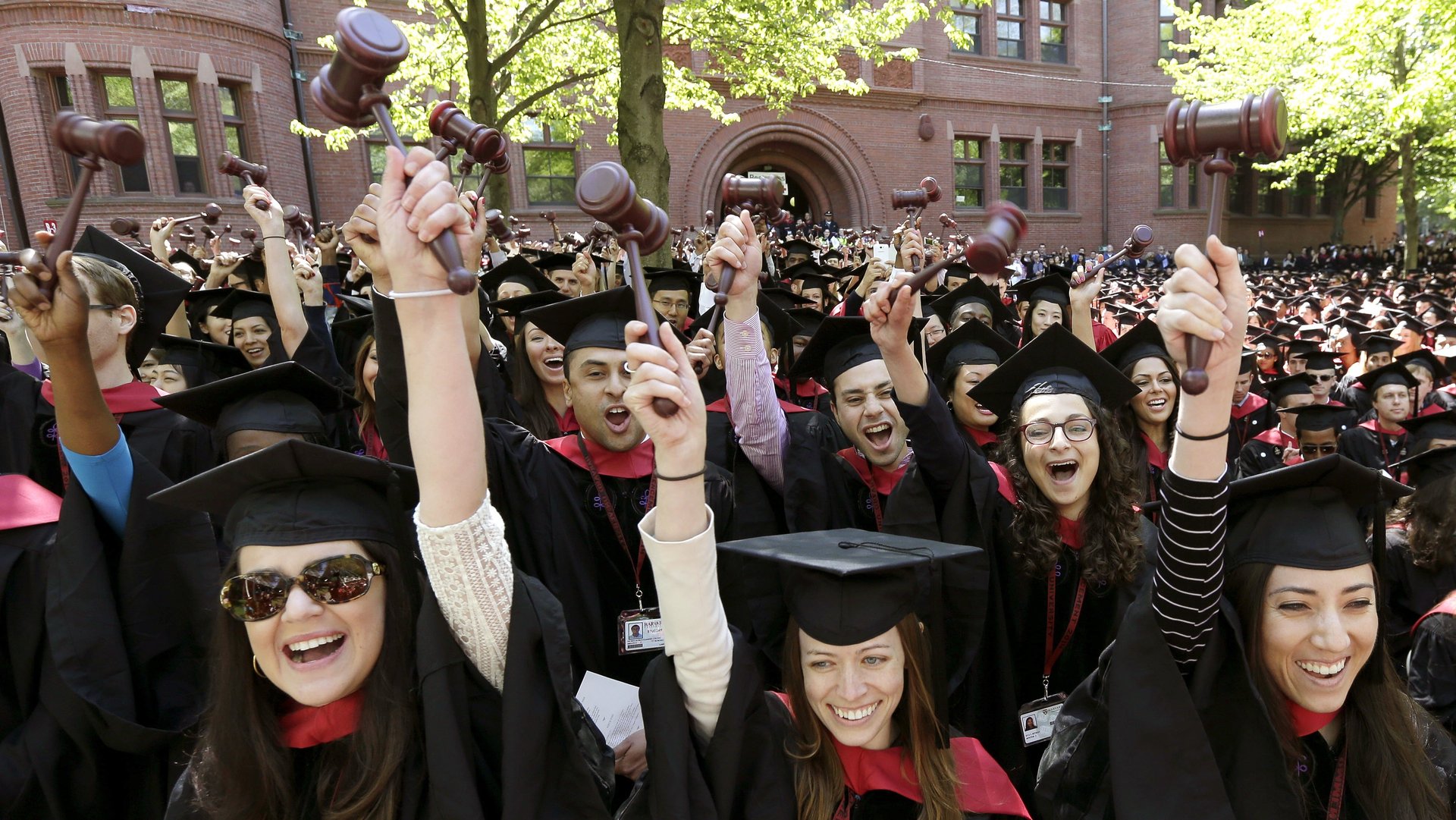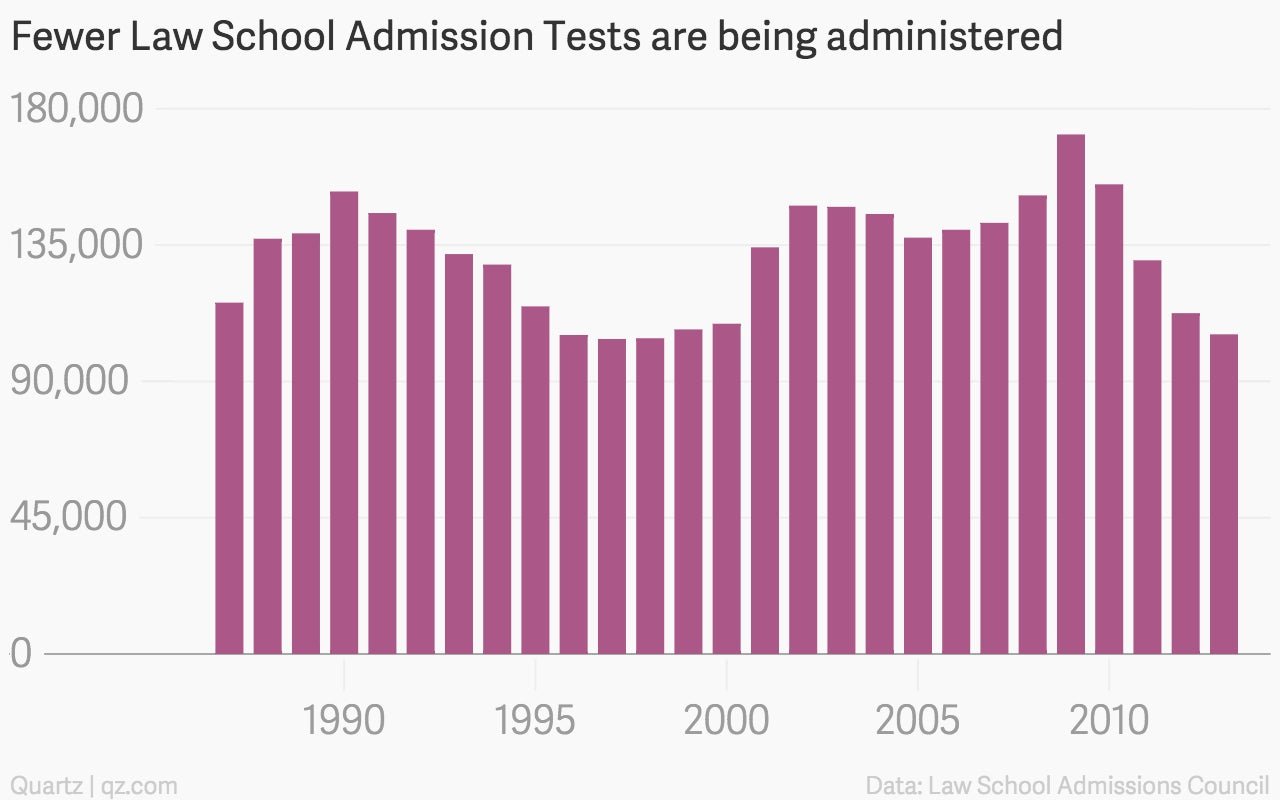You don’t have to take the LSAT to be a lawyer anymore
Two US universities—University of Iowa and the State University of New York at Buffalo—are allowing existing students to apply to their law schools without taking the Law School Admissions Test (LSAT).


Two US universities—University of Iowa and the State University of New York at Buffalo—are allowing existing students to apply to their law schools without taking the Law School Admissions Test (LSAT).
The changes come less than a year after the American Bar Association ruled that law schools could admit up to 10% of an incoming juris doctorate class without requiring an LSAT. The parameters are very narrow (pdf, via Bloomberg). Students must have attended that school as undergraduates, or be seeking the JD in conjunction with another degree. They also need to apply with a 3.5 grade point average or rank in the top 10% of their class, and score in the 85th percentile on a different standardized test, like the SAT or GRE. The ABA changed the rule because about 15 law schools had already been granted permission individually to implement similar standards, a spokesman told Quartz.
The LSAT can be a significant burden, at $170 per test plus the time and money spent studying, SUNY Buffalo law school dean James Gardner told Bloomberg Business. “This is just a way to identify strong-performing students based on perfectly rational criteria that don’t involve the LSAT.”
The LSAT saw a boost in tests administered during the recession, as graduates looked for other options to ride out the wave of unemployment. Now the economy has picked up, and the number of people enrolling in law school is decreasing.

That’s reflected in how many people are taking their LSATs. From June 2013 to February 2014, 105,532 tests were administered, the lowest number since 1998-1999.

It makes sense, then, for colleges to tap students already on campus as potential law students.
The Law School Admissions Council, which administers the test, does not anticipate that many aspiring lawyers will be eligible to forego the LSAT completely, since applicants still need the LSAT to apply to law schools other than the one at their current university, spokeswoman Wendy Margolis told Quartz via email. “One of the strengths of using these test scores in the admission process is that their reliability can be easily quantified, in contrast to other measures used in admission decisions. The LSAT score makes it easy for admission offices to compare an applicant to all other LSAT examinees.”
Quartz has requested comment from the University of Iowa and SUNY Buffalo, and will update this story if we get a response.